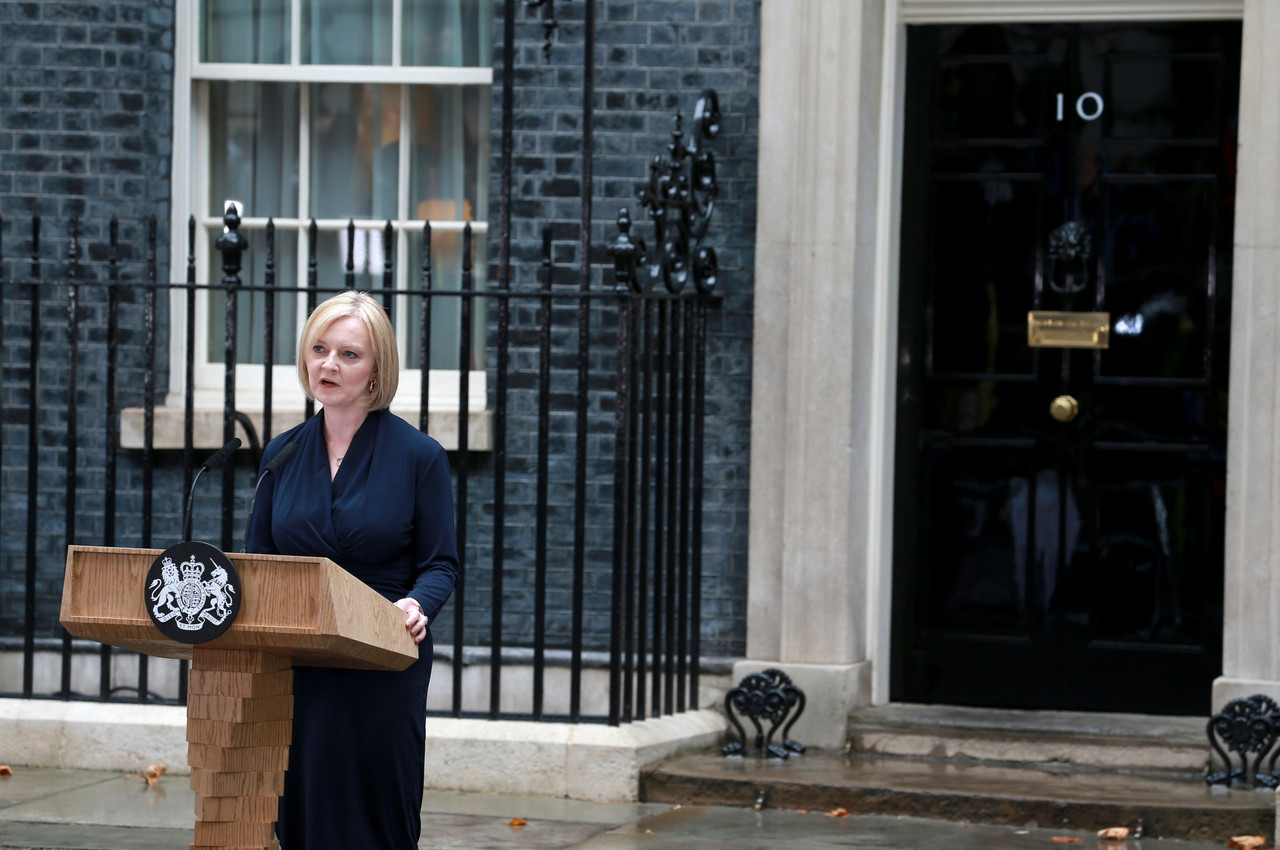The recently elected leader of the Conservative party, Liz Truss, has finally caved in to calls to resign. Several British MPs had asked for her to leave office following the resignation of Suella Braverman as home secretary and a chaotic vote on fracking on Wednesday.
Truss said she had came into office at a time of “great economic and international stability” and that she could not deliver the solutions promised to her party.
Since her appointment as head of the government by the Conservative party on 5 September, Truss has attracted negative attention from both the media and the political sphere in the United Kingdom. at the start of her mandate had put her political agenda on hold, only for it to resume with a mini-budget that has been described as “shock and awe”.
During her six-week mandate--the shortest in British history--Truss sacked chancellor Kwasi Kwarteng. On 17 October, news that her new finance minister Jeremy Hunt had scrapped Truss’ economic plan and drastically scaled back her economic plan caused investor confidence to dive. The British pound also saw its value tank.
For the mistakes in her programme, the UK prime minister had simply said ‘sorry’, but had until 20 October said she would remain in her position.
During her public resignation statement, Truss revealed that she had already talked to King Charles III about her intention to leave office.
Truss promised a new leadership election in the week to come, and confirmed she would remain prime minister until a successor is chosen.
Read also
